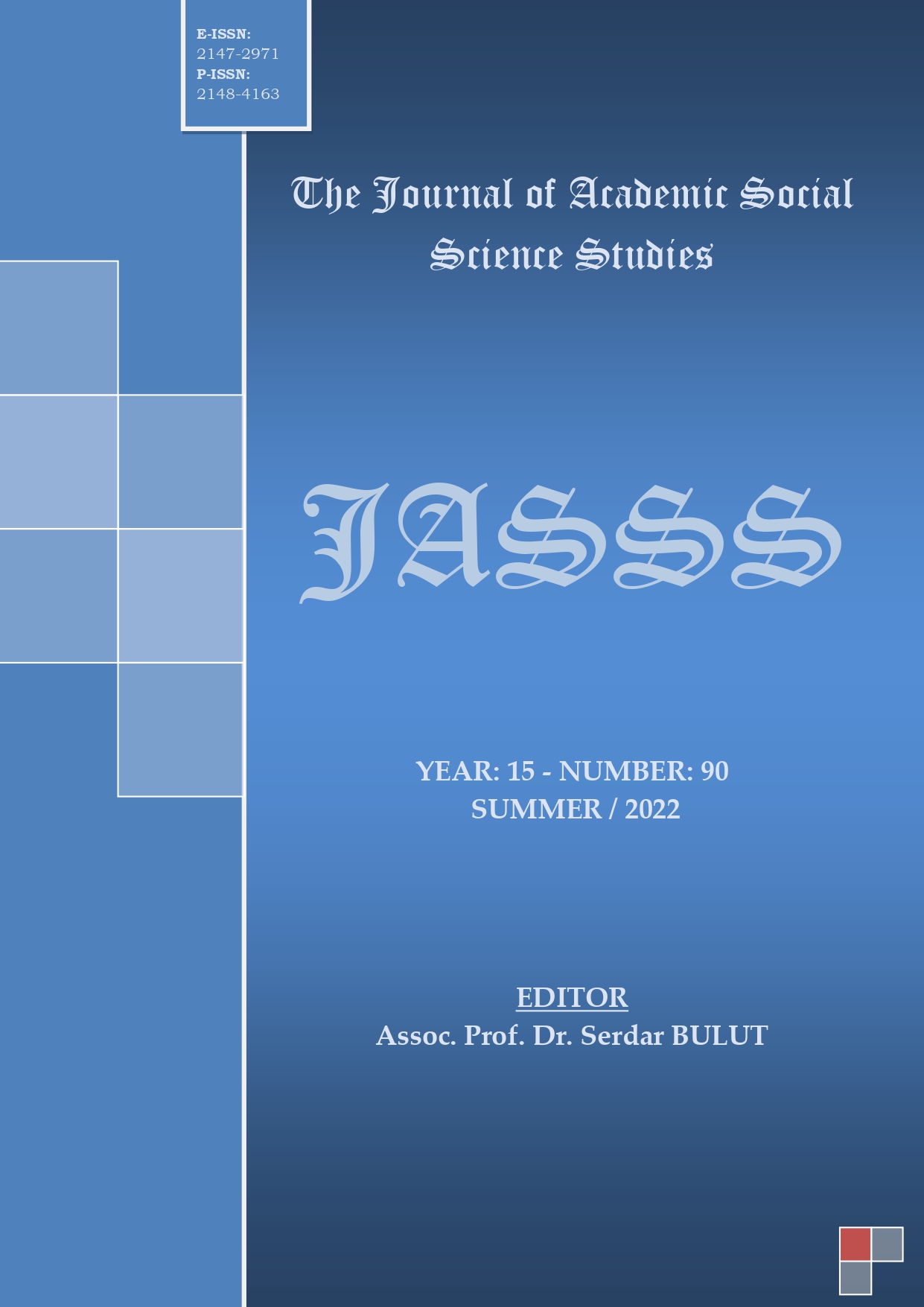Author :
Abstract
Küreselleşme ve dijitalleşmenin sürekli ve hızlı bir şekilde arttığı ekosistemde ülkeler teknoloji, sanayi, yatırım, eğitim gibi birçok konuda sürekli gelişim ve değişim içerisindedir. Gelişmiş ve gelişmekte olan toplam 19 ülke ve Avrupa Birliği Komisyonundan oluşan G20, ülke ekonomilerinin gelişmesi, planlı ve tutarlı bir şekilde ilerlemesi, ekonomik faktörlerin etkin bir şekilde kullanımı ve bu sayede sürdürülebilir bir şekilde kalkınmak için bir araya gelerek fikirlerini paylaşmakta ve ortak politikalar geliştirmektedirler. 12 Aralık 2019’da Çin’in Wuhan eyaletinde ilk defa görülen ve dünya geneline hızla yayılan ve ekonomileri derinden sarsan Koronavirüs salgını, ülkelerin kendi içine kapanması nedeniyle ekonomik faaliyetleri yavaşlatmış ve bu durum en çok işsizlikte etkisini göstermiştir. İşsizlik, ülkelerin karşı karşıya kaldığı ve çözümü için üzerinde durduğu en önemli ekonomik problemlerden biridir. Bu sebeple, bu araştırmada 2000 yılından günümüze kadar yıllık bazda dünya ekonomisinin üçte ikisinden fazlasını oluşturan G20 üyesi ülkelerin işsizlik oranını etkileyen, tarımın GSYH içindeki payı, enflasyon oranı, ithalat ve ihracat oranları panel veri analizi yöntemi ile test edilmiştir. Hausman testine göre modelin tesadüfi etkiler modeline uygun olduğu sonucuna varılmıştır. Bunu takiben varsayımlar test edilerek, modelde heteroskedastisite, otokorelasyon ve birimler arası korelasyonun var olduğu sonucuna varılmıştır. Bu üç durumu düzelten Driscoll-Kraay testi ile nihai model elde edilmiştir. Araştırma sonucuna göre, işsizlik oranının tarımın GSYH içindeki payı ile ihracat oranlarından aynı yönde etkilendiği ve enflasyon oranı ile ithalat oranlarından ters yönlü etkilendiği tespit edilmiştir.
Keywords
Abstract
In an ecosystem where globalization and digitalization constantly and rapidly increase, countries constantly develop and change in many subjects like technology, industry, education, climate change, sustainable investment. Group of 20 that comprises developed and developing 19 countries and European Comission, get together and share ideas and develop shared policies so that the economies can develop, progress in a planned and consistent manner, the economic factors are used effectively and thus develop sustainably. The Coronavirus (COVID-19) pandemic which emerged in the Wuhan city of China for the first time in December 12, 2019 and which has rapidly spread all around the world and profoundly shaken the economies has slowed down the economic activities as countries have withdrawn, which has had an impact on employment the most. Unemployment is one of the most important economic problems which the countries face and focus on the most to resolve. Therefore in this research, the share of agriculture, which affects the unemployment rates of the G20 member countries constituting more than two thirds of the world economy on an annual basis since 2000, within GPD, the inflation rate, import and export rates have been tested using the panel data analysis method. It has been concluded that the model fit the random effects model according to the Hausman test. Following that the assumptions were tested, and it was concluded that the model had heteroscedasticity, autocorrelation and interunit correlation. The final model was obtained with the Driscoll-Kraay test, which corrected all three. According to the findings achieved with this model, it was determined that the unemployment rate was affected by agriculture’s share within the GDP in the same way as the export rates and that it was affected reversely by the inflation rate and the import rates.
Keywords
- Acaroğlu, H. (2018). Is there a Trade-off between Output and Unemployment? An Evidence from Okun’s Law for G-20 Countries. Eskişehir Osmangazi Üniversitesi İİBF Dergisi, 13(2), 147-162.
- Akcan, A. T. ve Ener, M. (2018). Makroekonomik Değişkenlerin İşsizlik ile İlişkisi: Türkiye Örneği. Yönetim Bilimleri Dergisi, 16(31), 263-285.
- Baltagi, B. H., (2005). Econometric Analysis of Panel Data. England: John Wiley&Sons, Ltd.
- Bein, M. A. ve Çiftçioğlu, S. (2017). The Relationship Between the Relative GDP Share of Agriculture and the Unemployment Rate in Selected Central and Eastern European Countries. Agriculture Journals Czech, 0(7), 308-317.
- Ceritoğlu, E.; Gürcihan, H. B.; ve Taşkın, T. (2012). 2001 ve 2008 Krizleri Sonrası İşsizlik Oranı Gelişmeleri. TCMB Ekonomi Notları, 0(2012-23), 1-14.
- Daşdemir, E. N. (2017). Göçün Piyasalara Etkisi ve Faktör Hareketliliğini Açıklama Gücü: Emek Piyasalarının Küreselleşmesi ve Maliyetleri. Gazi Üniversitesi İktisadi ve İdari Bilimler Fakültesi Dergisi, 19(2), 676–700.
- Daşdemir, E. N. (2017). The Effects of Debt on Debtors and The Economy: An Observational Test on Consumer Credit and Wages. İktisat Politikası Araştırmaları Dergisi, 5(1), 58–72.
- Developed Countries List 2022, https://worldpopulationreview.com/country-rankings/developed- countries adresinden 02.01.2022 tarihinde erişildi.
- Fırat, S. ve Daşdemir E. N. (2021). Kripto Paralarda Miktar Teorisi Uygulaması: Bitcoin Örneği ve Covid-19 Salgının Etkisi. İstanbul İktisat Dergisi, 71(1), 81–102.
- Güriş, S., ve Yaman, B. (2018). OECD Ülkelerinde İşsizliği Etkileyen Faktörlerin Panel Veri Modelleri ile Analizi. Social Sciences Research Journal, 7(1), 136-146.
- G20 Research Group, (2008). Declaration of the Summit on Financial Markets and the World Economy http://www.g20.utoronto.ca/2008/2008declaration1115.html adresinden 24.01.2022 tarihinde erişildi.
- G-20, https://www.mfa.gov.tr/g-20-tr.tr.mfa adresinden 19.01.2022 tarihinde erişildi.
- Köse, Z. (2016). Türkiye Ekonomisinde 2003-2014 Döneminde Ekonomik Büyüme İşsizlik ve Enflasyon İlişkisi. Türk Sosyal Bilimleri Araştırmaları Dergisi, 1(1), 54-71.
- Olgun, F. A.; Işın, Ferruh ve Işın, Ş. (2018). Türkiye’de Tarımın Ekonomideki Yeri. Tarım Ekonomisi Dergisi, 24(1), 63-75.
- Özçelebi, O. ve Özkan, S.(2017). Economic Factors Influencing the Dynamics of Unemployment in the G10 Countries: Empirical Evidence From Panel Data Modeling. Journal of Business, Economics and Finance, 6(1), 17-30.
- Tatoğlu, F. Y. (2018). Panel Veri Ekonometrisi. İstanbul: Beta Yayınları.
- Ümit, A. Ö. ve Karataş, Ö. (2018). Türkiye’de İşsizlik ve İşsizliği Etkileyen Makroekonomik Faktörlerin Ekonometrik Analizi. Uluslararası Yönetim İktisat ve İşletme Dergisi, 7(2), 311-333.
- Ünsal, E. M. (2017). Makro Ekonomi. Ankara: Murat Yayınları.





